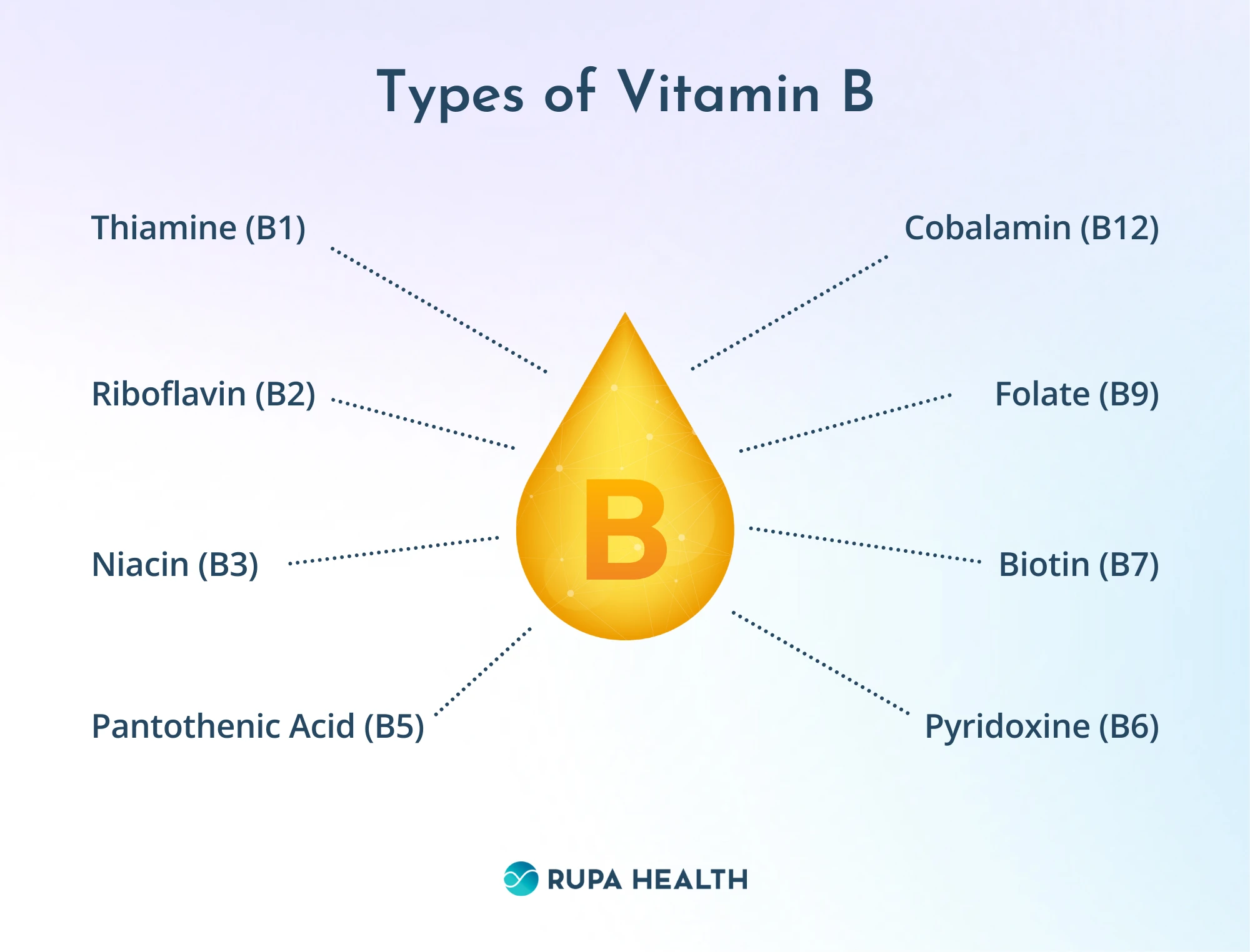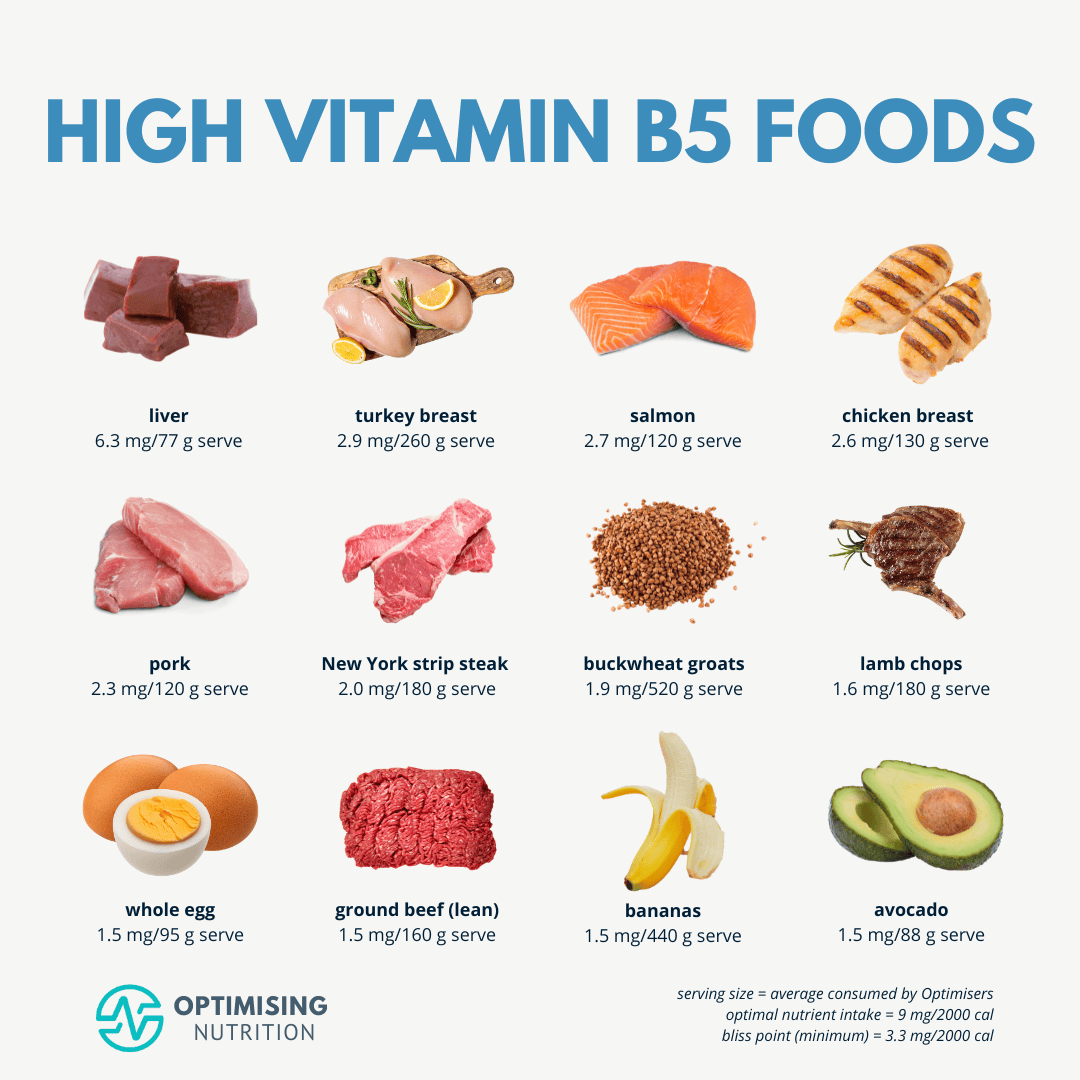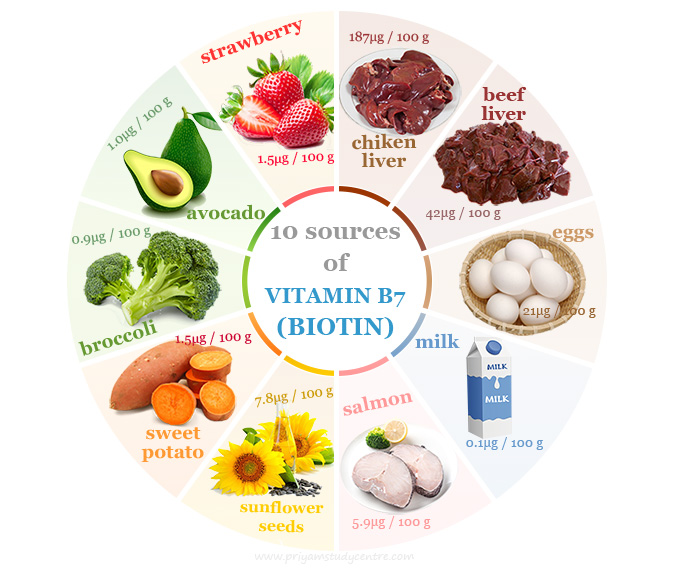The B Vitamins are a group of eight essential nutrients that play crucial roles in maintaining overall health, from energy production to brain function. Each vitamin B variant has unique benefits and sources. This article delves into each B vitamin, its health benefits, and the natural foods rich in these nutrients.

Thiamine is essential for converting nutrients into energy. It plays a significant role in nerve function and muscle contraction.

Riboflavin is crucial for energy production and cellular function. It also acts as an antioxidant.

Niacin is important for DNA repair, energy metabolism, and skin health.

Pantothenic acid is vital for synthesizing coenzyme A, which is crucial in fatty acid metabolism.

Pyridoxine is essential for amino acid metabolism, neurotransmitter synthesis, and red blood cell production.
Biotin is crucial for carbohydrate and fat metabolism and is well-known for its role in maintaining healthy hair, skin, and nails.
 Credits: Learning Chemistry[/caption]
Credits: Learning Chemistry[/caption]Folate is vital for DNA synthesis and repair, cell division, and during pregnancy for fetal development.
The B vitamins are essential for numerous physiological functions, including energy production, cell metabolism, and maintaining healthy skin and nerves. A varied diet that includes whole grains, meats, dairy, fruits, and vegetables can help you meet your daily requirements for these vital nutrients. Regular consumption of foods rich in B vitamins ensures that you harness their full range of health benefits, from improved energy levels to enhanced cognitive function.
Incorporating a balanced diet rich in B vitamins supports overall health and well-being. Always consult with a healthcare provider before making significant changes to your diet or taking supplements, especially if you have underlying health conditions or dietary restrictions.
Helps convert food into energy, supports nerve function, and prevents beriberi.
Essential for energy production, healthy skin, and vision.
Aids metabolism, lowers cholesterol, and supports brain function.
Crucial for energy metabolism and synthesizing coenzyme A.
Supports brain health, red blood cell production, and reduces PMS symptoms.
Promotes healthy hair, skin, and nails; supports metabolism.
Essential for DNA synthesis, cell division, and preventing birth defects.
Vital for nerve function, red blood cell formation, and DNA synthesis.